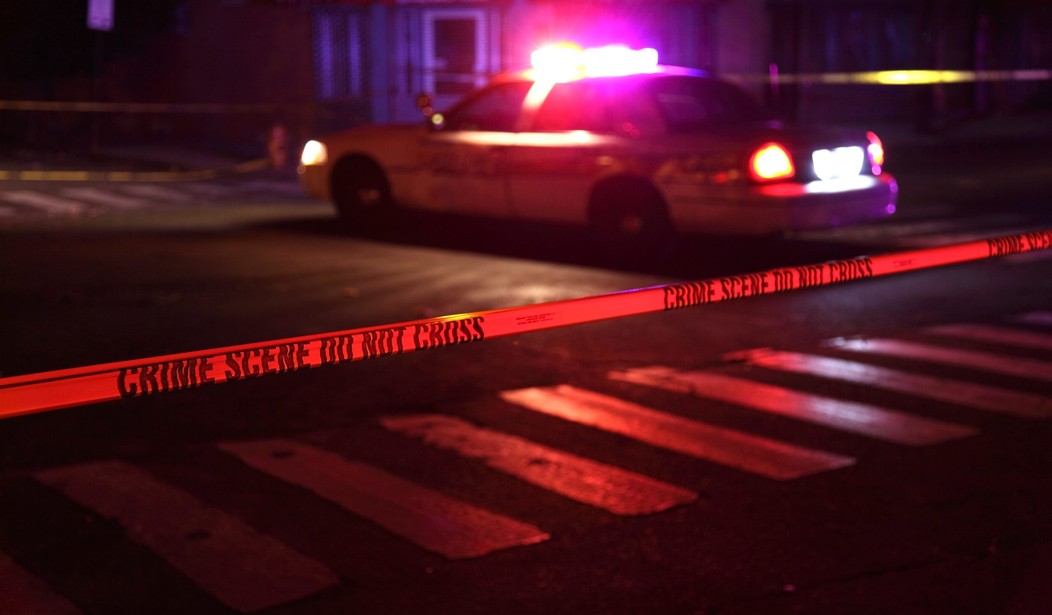Seldom does one see the folly of timidity demonstrated so quickly or with such clarity. Would that police managers across the nation heed the lesson provided this week in Baltimore.
Here’s what happened: At 1:16 a.m. Tuesday morning, a police officer was on a traffic stop in West Baltimore. Without apparent provocation, a man passing by in a silver SUV tried to run over the officer. The officer escaped injury and broadcast a description of the car, which another officer spotted about a mile away. When that officer made a traffic stop, the driver exited the SUV and began firing at the officer with a handgun. The officer was not hit and a car chase ensued, with the SUV leading police on city streets until reaching Interstate 295, at which time a police major ordered the pursuit terminated over “safety concerns.”
The officers involved in the pursuit, indeed officers everywhere, were flabbergasted. Here they had a suspect who had attempted to kill two police officers, and yet he was allowed to escape because some desk-bound major was afraid of what might happen if the chase had continued.
What those pursuing cops understood, what any cop should understand, but what that major clearly did not, was that the escaped suspect, if unidentified, would be free to roam the city until he perceived the next opportunity to kill some unsuspecting cop. And if the suspect was identified, officers would have to search for and arrest him, perhaps at a time and place that offered him advantages he did not have when the chase was imprudently called off.
And as fate would have it, it was less than 48 hours later that officers encountered the man once again, this time in East Baltimore, chasing him through the streets before shooting and killing him. A police officer was shot in the leg and a woman was injured, either by a bullet or shrapnel. Officers recovered the suspect’s gun at the scene.
All in all, a satisfactory outcome under the circumstances, with the suspect dead and non-life-threatening injuries to a police officer and a passerby. But it might have turned out far worse, and if it had, that cowardly major would have borne some share of responsibility. I don’t know anything about this major, but I’m confident I know his type, for I have seen the likes of him slithering into positions of responsibility over the course of my police career.
I have written on this subject before, but this incident in Baltimore prompts a revisit. To outsiders, all cops might seem more or less interchangeable. But cops themselves know they can be assorted into three categories: Real Cops, Slugs, and Climbers. Real Cops are those who can be called upon to handle the most dangerous and complicated aspects of police work. Slugs are those who show up to work and do the bare minimum required to earn their biweekly paycheck. And Climbers are those whose eyes are on the next rank, doing whatever it takes to pass the tests and move up the chain of command. To achieve this they must share some traits with both the Real Cops and the Slugs. They must do enough police work to claim some shred of credibility before the promotional boards, but they must be cautious enough to avoid the kind of controversial incidents that stall advancement and doom cops to a career in patrol, which to a Climber is a fate worse than death.
And what a Climber fears most is being held responsible when something bad happens. That’s how you get people like that Baltimore P.D. major calling off a pursuit down a freeway at one in the morning. Yes, the suspect had tried to kill two cops, and yes, there was little traffic at that hour of the night, but if the suspect had crashed and injured some innocent motorist or pedestrian, the decision to continue the pursuit would have been questioned. What is never questioned is what might happen after the pursuit is called off. From that major’s perspective, if the suspect goes on to injure or kill a cop or someone else, well, those are the breaks, but at least he can’t be blamed for it.
It is this attitude, the one that assumes anytime a cop is involved in a shooting or use of force he must have somehow erred, that has permeated the upper ranks of many police departments, apparently to include Baltimore’s. It is the same attitude that engenders incidents in which police officers are doused with water, resulting in humiliation for the dousees but no repercussions for the dousers.
And now, in a matter of just a few short weeks, we’ve gone from water to bullets, and a major in the Baltimore Police Department thinks it’s too risky – on a freeway at one in the morning – to pursue the man who had just tried to kill two of his officers.
Baltimore has recorded 227 homicides so far this year, a rate of almost one per day. It will never improve as long as the city’s cops are hamstrung by timid managers as they were Tuesday morning.










Join the conversation as a VIP Member